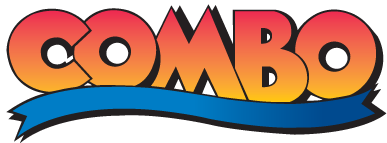
Jerry Ordway finds reading ‘interactive’
By Jerry Ordway – When COMBO asked me to do one of these “Recommended Reading” columns, I started to think back to all of the books I read as a kid which had some impact on me. The list turned out to be somewhat short, as I spent most of my childhood playing sports with my brother Joel and our friends. The time left over was filled by learning to draw, and reading (mostly) Marvel comics. Books were something you read in school, after all. Oh, sure, on occasion, I’d find myself enjoying a book-report book, like The Adventures of Lewis and Clark [Is Clark cheating on Lois already?—ed.], but I didn’t use my library card often.
When I was 12, I read a collection of H.G. Wells stories, including The War of the Worlds and The Time Machine. I followed that with an Arthur Conan Doyle Sherlock Holmes collection. Both of those books kept me enthralled, but neither put me off of reading comics or drawing. In high school, I read and enjoyed Death Be Not Proud, which chronicled the author’s teenage son’s battle with a life-threatening disease, and it moved me tremendously. And to think, I picked it off the shelf solely because Roy Thomas used the title for an issue of The Avengers he wrote! [And Jerry eventually worked with Roy on DC’s All-Star Squadron! Cool, huh?—ed.]
One of my favorite authors is Stephen King, and I list ’Salem’s Lot and The Dead Zone as personal faves. I started reading King on a recommendation from Don and Maggie Thompson, through their column in The Buyer’s Guide. This was back in 1978 or so, when I had an hour-long commute to my commercial art job, so I had the time to read. I devoured everything King put out after that, only faltering with his last few years worth of material, due to burn-out, I guess. His latest, the serialized The Green Mile, rekindled my interest; it’s a great read. Each part is around 100 pages long, and the effect is like a cliffhanger serial—you can’t wait to read the next one!
Recently, I’ve been reading some police thrillers and medical thrillers, and I’ve found two authors who impress me, I guess because both are experts in their fields.
Robert Daley has written many books and is a former cop, so his work gives me a sense of what it’s really like to be in law enforcement. Tainted Evidence and Wall of Brass are two that I’ve enjoyed, and I look forward to reading more.
Michael Palmer writes thrillers involving doctors, nurses, and conspiracies. The Sisterhood, Silent Treatment, and Extreme Measures all move at breakneck pace, and provide plot twists galore. Again, because Palmer is in medicine, I come away feeling like I learned a bit about the workings of the medical community, which in turn I can use in my own writing.
Getting back to fantasy, I enjoyed Clive Barker’s Damnation Game and Weaveworld. Barker’s work is very imaginative, and Weaveworld, especially, had me visualizing special effects so much my head hurt. Mark Frost, co-creator of the weird Twin Peaks TV series surprised me with his two novels to date: The List of Seven and The Six Messiahs. Both feature A. Conan Doyle in fictional “what ifs,” imagining that Sherlock Holmes’ creation and adventures were inspired by incidents in the young author’s life. These were an awful lot of fun to read, though you should read List first.
Reading is most enjoyable for me because I can cast actors for these stories in my head, and pace them simply by putting them down and then picking them up to read again. It’s interactive, without 32-bit cartridges or letterboxing. You enter into a partnership with the author when you commit to page one, and by the end you know if you’ll ever do business with him or her again.
Make time to read. Turn off the TV, radio, stereo, whatever, and pick up a book—maybe even one I’ve recommended here.





